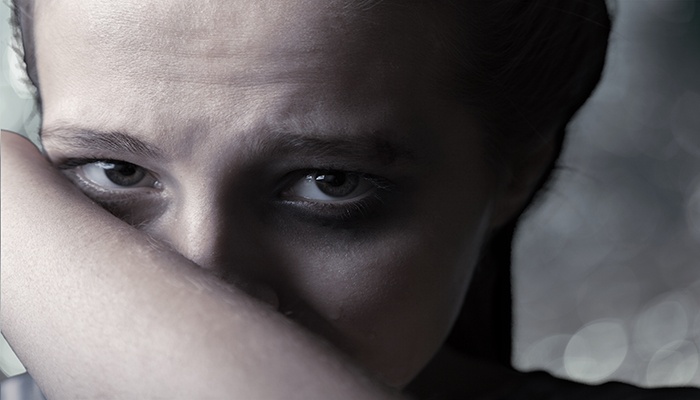Anxiety is a common and natural emotional response that everyone experiences at some point in life. It can serve as a protective mechanism, alerting us to danger or helping us prepare for important events. However, when anxiety becomes overwhelming, persistent, or interferes with daily life, it may be classified as an anxiety disorder. These disorders are among the most prevalent mental health conditions globally, affecting millions of individuals regardless of age, gender, or background.
What Is Anxiety?
At its core, anxiety is the body’s response to stress or perceived threat. It triggers a “fight or flight” reaction, releasing hormones such as adrenaline and cortisol that prepare the body to face danger. While this response is useful in short bursts, chronic anxiety can lead to physical and emotional exhaustion.
Anxiety can manifest in various forms, including generalized anxiety disorder (GAD), panic disorder, social anxiety disorder, and specific phobias. Though these conditions differ in their specific triggers and patterns, they share common symptoms and underlying mechanisms.
Common Symptoms of Anxiety
The symptoms of anxiety can be both psychological and physical. Some of the most common include:
Excessive worry or fear, often disproportionate to the actual situation
Restlessness or feeling “on edge”
Difficulty concentrating or mind going blank
Muscle tension and headaches
Sleep disturbances, including trouble falling or staying asleep
Rapid heartbeat or palpitations
Shortness of breath or dizziness
Nausea or gastrointestinal discomfort
These symptoms can range from mild to severe and may occur intermittently or persist over long periods. Chronic anxiety can also lead to avoidant behaviors, where individuals steer clear of situations that might trigger their symptoms, further limiting their quality of life.
Causes and Risk Factors
Anxiety is influenced by a complex interplay of biological, psychological, and environmental factors. Some of the most significant contributors include:
Genetics: A family history of anxiety or other mental health disorders can increase the likelihood of developing anxiety.
Brain Chemistry: Imbalances in neurotransmitters such as serotonin, dopamine, and gamma-aminobutyric acid (GABA) can affect mood regulation.
Personality Traits: Individuals who are highly sensitive, perfectionistic, or prone to negative thinking may be more susceptible to anxiety.
Life Events: Traumatic experiences, such as abuse, the loss of a loved one, or prolonged stress, can trigger or exacerbate anxiety.
Medical Conditions: Certain health issues, including thyroid problems, heart conditions, and chronic illnesses, can contribute to anxiety symptoms.
The Impact of Anxiety
If left untreated, anxiety can have a profound impact on all aspects of life. It can strain relationships, hinder academic or work performance, and increase the risk of other mental health issues such as depression or substance abuse. Chronic anxiety can also lead to physical health problems, including cardiovascular issues, weakened immune function, and digestive disorders.
Coping Strategies and Treatment Options
The good news is that anxiety is highly treatable. Effective management often involves a combination of approaches tailored to the individual’s needs. Common strategies include:
1. Therapy
Cognitive Behavioral Therapy (CBT) is one of the most effective treatments for anxiety. It helps individuals identify and challenge negative thought patterns, develop healthier ways of thinking, and learn coping skills. Exposure therapy may also be used to help individuals face and reduce fear related to specific triggers.
2. Medication
In some cases, medication may be prescribed to manage symptoms. Common medications include selective serotonin reuptake inhibitors (SSRIs), benzodiazepines (for short-term use), and beta-blockers (for physical symptoms like rapid heartbeat). Medication should always be monitored by a healthcare provider.
3. Lifestyle Changes
Simple changes in daily habits can significantly reduce anxiety. These include:
Regular exercise, which boosts endorphins and reduces stress
Mindfulness and meditation practices to calm the mind
Balanced nutrition and hydration
Adequate sleep and sleep hygiene
Limiting caffeine and alcohol intake
4. Support Systems
Talking to trusted friends or family members can provide emotional support. Joining a support group or seeking help from a mental health professional can also be invaluable.
Breaking the Stigma
Despite being so common, anxiety still carries a stigma in many societies. It is important to recognize that anxiety disorders are legitimate medical conditions and not a sign of personal weakness. Encouraging open conversations about mental health can help others feel less alone and more empowered to seek help.
Final Thoughts
Anxiety, while challenging, does not have to define one’s life. With awareness, understanding, and the right tools, individuals can learn to manage their symptoms and lead fulfilling, productive lives. Whether through therapy, medication, lifestyle changes, or a combination of all three, support is available—and healing is possible.







